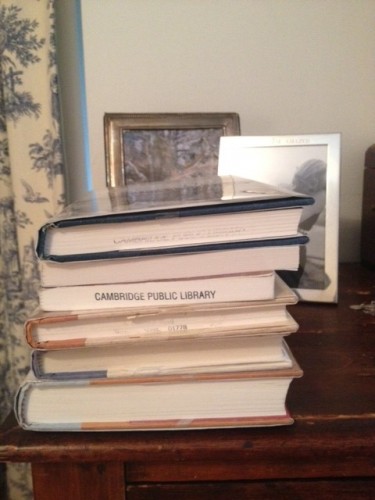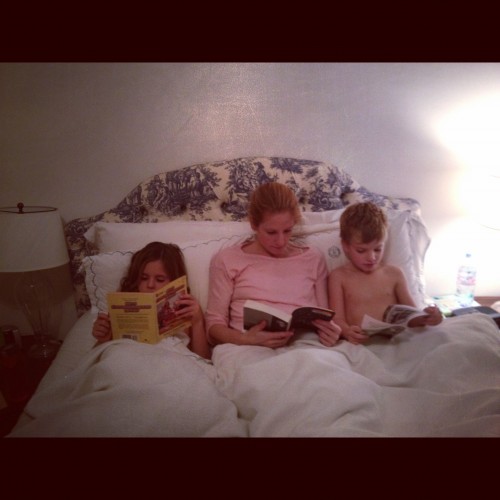The Bread of Angels opens as Stephanie Saldana arrives in Damascus. She is a 27 year old running away from devastating losses in both her family and her love life. She comes to Syria on a Fulbright, after graduating from a master’s program at the Harvard Divinity School, trailing streamers of all that is broken and shredded in her life: relationships, family stability, self-esteem, sense of purpose. She spent the years between college and her master’s program traveling around the world, “chronically incapable of staying in one place.” Her attempt to settle down, in a serious relationship and in a graduate program, ends with anguish when her boyfriend tells her to go to Syria, and he’s not sure he ever loved her anyway.
Raised Catholic in San Antonio Texas, in a family with a deep seam of despair, darkness, and depression running through it, Saldana acknowledges in herself an unmistakable, though initially inchoate, pull to the Middle East and to the Arabic language. Her Fulbright is to study the Muslim Jesus, and the first thing she does is immerse herself in the study of Arabic. These first months in Damascus are full of sensory overload, and Saldana describes gorgeously the sights, smells, and sounds of a city that is both foreign and, somehow, intimate. While much of this part of the world is unfamiliar to me, I thought on every page of our trip to Jerusalem in December. At the very least, I could hear the haunting call to prayer that floats through Saldana’s pages, and the air in Damascus.
At the heart of the book is Saldana’s pilgrimage to Mar Musa, an ancient Christian monastery built in the cliffs outside of Damascus. After her ascent to the monastery, hundreds of steps long, Stephanie bows to enter the tiny doorway. Doors of humility, she tells us they are called, and as she ducks into Mar Musa she remembers lines in the Gospels about the narrow gate to the kingdom of heaven:
Let us strive to enter by the narrow gate. Just as the trees, if they have not stood before the winter’s storms, cannot bear friend, so it is with us; this present age is a storm.
It isn’t long until we see Saldana thrown around by the winds of a wild storm. At Mar Musa she embarks on the Spiritual Exercises, a four-week practice of silence and prayer, under the guidance of an ebullient, charismatic monk called Paolo. She is drawn to Paolo for many reasons, but most of all because chosen establish his church in the midst “the ruins of history” and to be a living testament to the belief that the Middle East’s story contains more than violence and does not need to end tragically. Saldana has a series of intense experiences during her four weeks in the desert. She encounters angels, ghosts, and, in these ways and others confronts her own history and her own life. She dwells with the words of the Bible and with her own memories, is overcome by “a tsunami of grief,” writes down all the sins she has ever committed, and, in a pivotal moment, stands on the summit of a mountain, speaking into the void.
I tell the air the story of my life. It comes out like music. I don’t know to whom I’m speaking, but I feel someone listening. It must be God. It can be no one else.
Saldana experiences a capitulation, a surrender. “Here,” she says to God. “Do what you will do.” Laying down the reins of her life, she feels “something inside [my] chest breaks open, unleashing an aching, a longing.” Suddenly she feels as if she is able to see the world “from the inside,” and she flashes through visions of her family and of places she has known – Beirut, Bethlehem, Baghdad. All at once, though she can’t articulate how, she acknowledges that “something is different,” looks up at the sky, and whispers yes.
I’ve never read a description of a moment of intense spirituality that so moved me. I was on the rock in the Syrian desert with Saldana, feeling the enormous echoing loneliness of the world but also the murmuring sense that something out there heard her. I read these pages with tears rolling down my cheeks and, to my mind, they are the most powerful of the entire book.
The Spiritual Exercises bring Saldana extravagant depths of emotions, and a new sense of the world which is crystalline in its clarity and shaky in its newness, but they do not yield answers. She feels the presence of God in a newly tangible way but does not resolve the question of whether or not she is called to be a nun. As her month in the monastery ends, she shares a charged moment with a novice monk named Frederic. She describes the tiny rosary he gives her as “like a single, fragile sentence, strung together and separated by commas, with no beginning or ending” and presages the importance Frederic will have in her life.
After Saldana comes down from the monastery on the mountain, she goes home to San Antonio for Christmas and is overwhelmed by the “simple, alarming beauty” of her family, newly aware of all “those treasures [I] had not known that [I] possessed.” Upon return to Damascus she embarks on a reading of the Quran in its original language, Arabic. The female sheikh that she turns to to guide her on this journey is just one of the book’s marvelously rendered characters. Saldana shows us that there are teachers at every turn. She is able to point out the beauty and brokenness of the most ordinary people, whether it’s the Iraqi refugee selling paintings to tourists or the curious, entertaining 72 year old landlord who takes her under his wing.
I read the last section of The Bread of Angels quickly, eager to find out more about the deepening friendship between Saldana and Frederic. As their closeness grows, so too do a host of thorny, complicated questions. Frederic, after all, is a monk, and choosing a love affair and life with Stephanie means he must leave his calling. In these chapters we also witness the flowering of Saldana’s relationship with the Quran, her increasing mastery of Arabic, and her growing comfort in the world. But I admit I just wanted to find out more about she and Frederic (lucky for me, my sister and Stephanie have become friendly in Jerusalem this year, so I was able to get an update from the real world!)
I utterly adored The Bread of Angels. Saldana writes with a poet’s sense of language, and her story overflows with the extraordinary richness of the Middle East and its religious communities. Her experience is simultaneously incredibly foreign – she is a religious scholar in Syria, steeped in Islam and Arabic – and profoundly relatable – she is a woman who can feel, beyond the edge of what she can see, the throb of a meaning whose power overwhelms her. I underlined profusely as I read, and I also wept more than once. Saldana’s story weaves through nuances of the world’s great religions, but its underlying heartbeat speaks of humanity, spirituality broadly defined, and what is it to love this world even as we witness its brokenness. The Bread of Angels is about nothing less than how to live an aware, open-hearted life, and I can’t recommend it highly enough.


